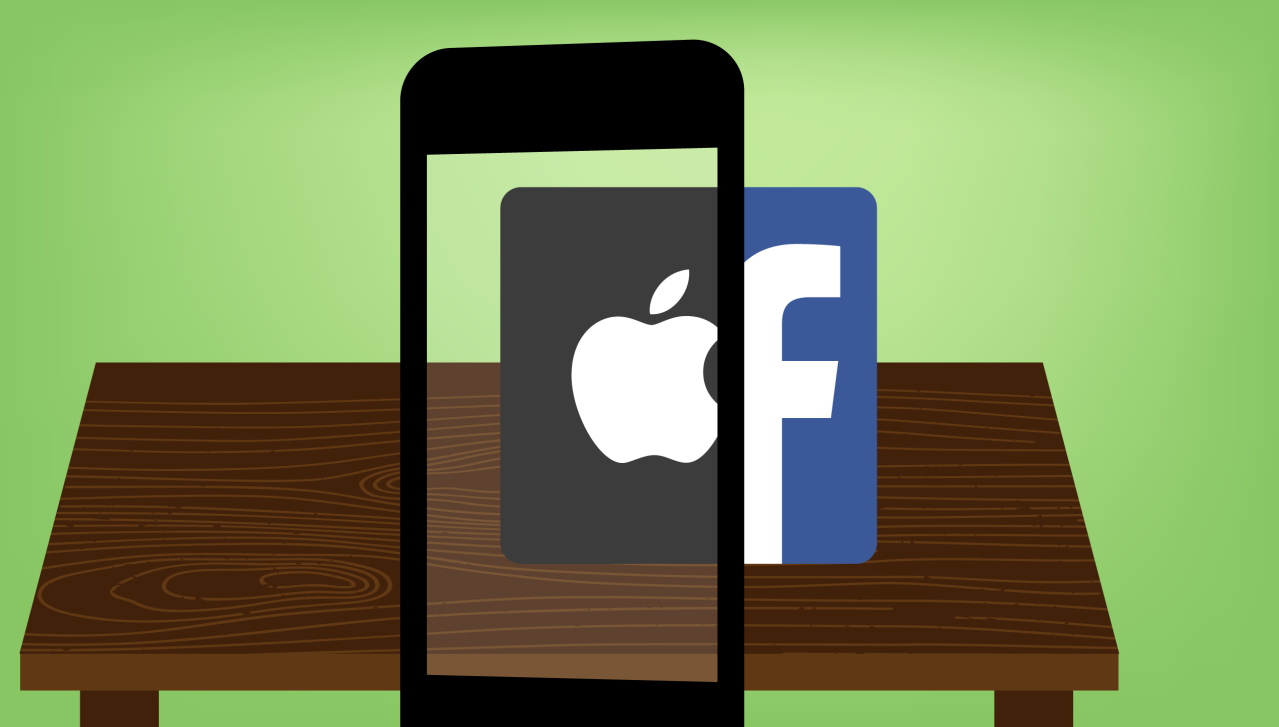 3889
3889
 2017-06-14
2017-06-14

Facebook’s grand vision for augmented reality was that it would make it easy for any developer to build and distribute an AR experience — as long as it lived inside Facebook’s app. But Apple has once again used its control of the mobile operating system to build a wider platform than Facebook can, this time with AR that lives inside developers’ own apps.
On the open web of desktops, Facebook built a massively powerful game platform that spawned huge businesses like Zynga. On mobile, it couldn’t do the same. Apple forbid developers from building app stores inside their apps. Facebook tried to build its own HTML5 game platform inside its native app anyway.
Now Facebook is in danger of that same scenario playing out with augmented reality.

Facebook knows that sleek, capable, affordable AR glasses are still years away. Instead, it sees the phone camera as today’s AR device that already has massive scale. So at this year’s F8 in April, it launched the Facebook Camera Effects platform. Developers can use its AR Studio program to develop interactive AR experiences that overlay make-believe animation atop the real world, triggered by locations, objects, data streams, and more.
Facebook has a number of advantages with this strategy. Its app is already massively popular, with 1.9 billion monthly users. It has 10 years of history working with developers. And since everything in AR happens “on camera”, it will be easy for users to share the content with friends via Facebook, helping the developers to grow.
But as desktop games, brand Pages, and news publishers have learned, depending entirely on Facebook’s walled garden can be risky. If Facebook changes directions, seeks to shield its users from noise, or wants to assume more power, there’s little these outsiders can do to control the terms of the deal. Suddenly they can see their viral reach decimated, because since Facebook hosts all these developers, poor experiences reflect on it directly so it’s quick to prioritize long-term user satisfaction over everyone else’s businesses.
That paves the way for Apple’s approach to augmented reality. ARKit, launched last week at WWDC, lets developers easily take advantage of the iPhone’s camera and Visual Inertial Odometry to overlay AR content on the real world within their own apps. Developers control their own destiny, deciding what to do and how to promote their AR experiences.
They won’t have to hope to be featured by Facebook or abide by its rules. And their native iOS AR apps will be available to many more people than those built on Google’s Tango AR platform that only runs on a small subset of Android phones equipped with special hardware.
Since every iOS app can easily plug in AR features, Facebook’s camera platform loses some of its singular charm. If Apple had waited one more year to launch ARKit, or even just until the new iPhone and iOS 11 launch in September, it could have been stuck playing catch-up to Facebook’s AR dev community. Instead it seized the opportunity by launching its platform just six weeks after Facebook.
While Facebook has only previewed experiences from a limited range of big name partners like Nike, EA games, and NASA since it curates what’s available, tons of Apple ARKit developers are already showing off the flexibility of baking AR into the mobile operating system, from creating AR characters like BB-8 from Star Wars, to visualizing a running route on AR mountains, to drawing on surfaces, and creating all manners of weird art.
My bike ride in AR. (Unity + ARKit + Mapbox + Strava) pic.twitter.com/g2uVwVlM3h
— Adam Debreczeni (@heyadam) June 7, 2017
Essentially, Apple has made core augmented reality technology table stakes rather than a unique draw. Facebook will have to trade on its power to feature AR experiences in front of its billions of users on both iOS and Android, the potential to go viral through its social network, and its low friction since potential AR experience users don’t have to install a new app.
Facebook will of course get to lean on Apple’s technology too. But if developers side with Apple and the idea of putting AR in their own apps, it could deprive Facebook of AR experiences it’s relying on to help it outdo Snapchat.
The physical world is far too vast for any one company to fill it with AR by itself. Yet secretive Snapchat has no background in working with developers. If Apple steals the longtail of the dev crowd, Facebook may have to rely on a few key partners and its own sagging ingenuity to dream up AR fun that attracts teens.
Source: Techcrunch